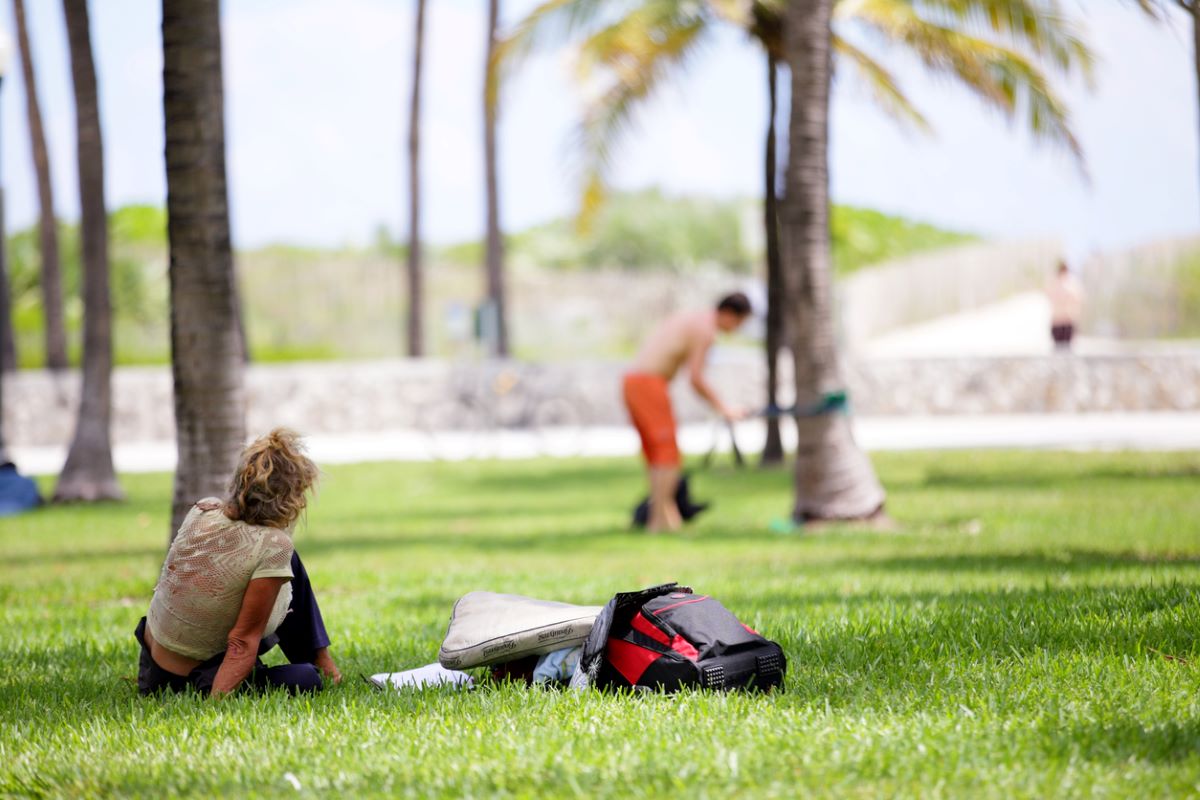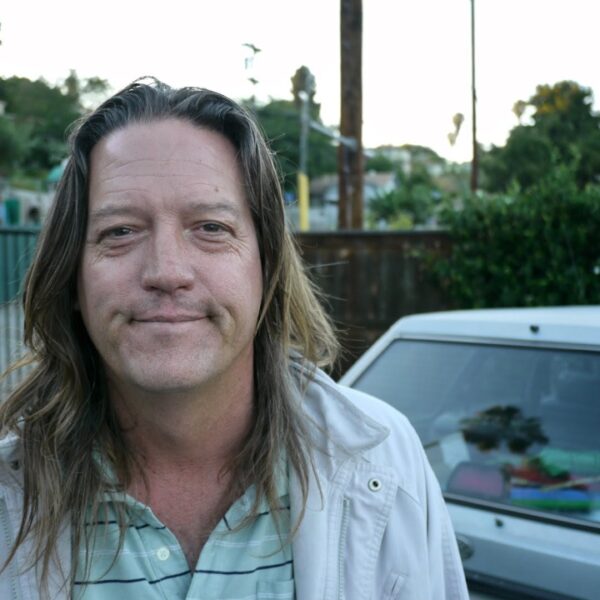Florida state lawmakers approved a bill that prohibits camping on public property at a time when homelessness has increased by more than 8% across the state since 2022.
The law, also known as House Bill 1365, would prohibit cities and counties from allowing people experiencing homelessness to sleep or camp on public property. Governments or agencies that offer alternative shelter options like Safe Outdoor Spaces or Safe Parking Spaces would also be required to ban the use of drugs and alcohol from their premises.
Alternative shelter sites must also be in areas of town where they “would not adversely and materially affect the property value or safety and security of other existing residential or commercial property,” according to the bill’s text.
HB 1365 was delivered to Gov. Ron DeSantis’ desk on March 12 and the governor is expected to sign the legislation imminently. When it was introduced in early February, DeSantis said the bill aimed to “keep Florida’s streets safe and clean.”
However, the bill has drawn the ire of housing advocate David Peery, founder of the Miami Coalition to Advance Racial Equity.
Peery said the bill is “incredibly discriminatory” and seeks to “dehumanize the poor” under the guise of connecting people with services and support.
“This has been a longstanding goal of certain really fascist repressive people throughout the years,” Peery said.
Florida state Democrat Sen. Rosalind Osgood, who experienced homelessness as a single mother, has also spoken out against the bill because of the burdens it would place on local municipalities. Senate Democrats such as Leader Lauren Book and Geraldine Thompson joined Osgood in opposing the bill.
“I just think that the government exists to help people and not hurt them. The government has to prioritize people, especially people that are suffering,” Osgood said. “I think the state of Florida is greater than that.”
Florida has had one of the top-three highest rates of overall homelessness since at least 2007, behind California and New York, respectively, according to data from the Department of Housing and Urban Development. More than 30,700 people experienced homelessness in Florida in 2023, which represents a year-over-year increase of 8.5% or 2,428 people.
The state was also home to several of the country’s hottest rental and for-sale housing markets during the pandemic. Redfin data shows the median rent in cities like Tampa and Miami increased by more than 30% to $2,275 and $3,333, respectively, during the pandemic. In 2020, a report from the Government Accountability Office found that a $100 per month increase in rent correlates with a 9% increase in local rates of homelessness.
The efforts to ban public camping in Florida are also happening at a time when cities in urban centers like Orlando and Miami Beach have passed similar ordinances to combat rising homelessness.
The Neighborhood Center of West Volusia CEO Savannah-Jane Griffin said she hopes the laws will help “guide” unhoused folks toward available services.
“We’ve had a lot of concerns of local citizens and businesses seeing individuals sleeping on the street,” she said. “My hope is that it will be positive and that we can impact people’s lives.”
Meanwhile, the Supreme Court is reviewing a case from Grants Pass, Oregon, that could determine how cities are allowed to address public camping going forward. The case, Johnson v. Grants Pass, could determine whether cities can cite or arrest people experiencing homelessness when adequate shelter is not available.
“In this case, the Eighth Amendment is a really low bar here. But, unfortunately, the city of Grants Pass wants to go under even that very low bar,” Tars told Invisible People. “All the courts have said here is that you can’t punish people experiencing homelessness for something as simple as putting a blanket over themselves when there’s literally nowhere else for them to go.”
How You Can Help Fight Anti-Homeless Legislation
In the face of a rising tide of anti-homeless legislation, we are engaged in a critical battle against misinformation and the criminalization of homelessness.
Across the nation, anti-homeless laws are advancing through legislative committees, propelled by secret votes, corporate funding, out-of-state lobbyists, and conservative think tanks like the Cicero Institute.
The pandemic proved that we need to rethink housing in the United States. It also showed that many programs designed to address homelessness are rooted in law enforcement rather than social services.
At this pivotal moment, we must make the truth louder than ever. Tell your representatives you support revamping how your city addresses homelessness. Handcuffs do not get anyone closer to stable housing. Instead, we must focus on compassionate solutions, the first step to ending homelessness.













